Ten months since Beijing’s imposition of its national security law on Hong Kong, press freedom in the SAR is increasingly under threat while there are fears that another new law will allow the authorities to ban people from leaving the city.
This month, authorities also vowed action against “fake news” while a journalist has been convicted after accessing public records to investigate police behaviour during the 2019 protests. Public perception of local media independence and credibility are at record lows.
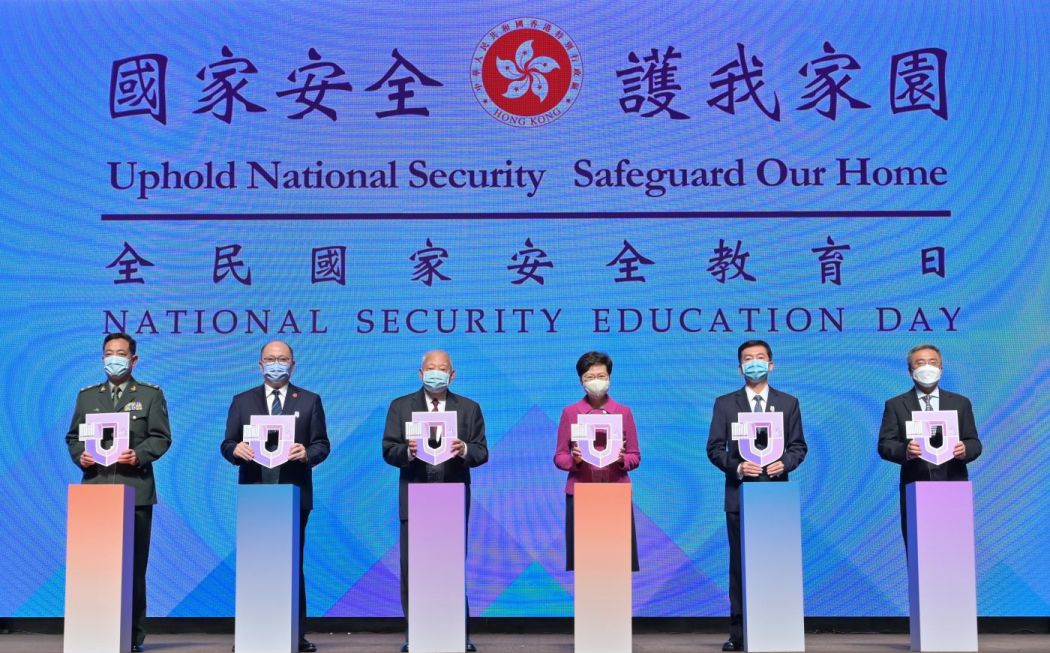
April also saw the city host its inaugural “National Security Education Day” to instil a sense of nationalistic pride and identity, with children as young as three learning about the importance of “patriotism”.
HKFP continues its monthly roundup of how Hong Kong is being transformed under the Beijing-led national security crackdown.
‘Exit ban’ fears
The legislature passed a law granting the Director of Immigration the power to ban anyone from boarding an aircraft to enter or leave the city to address a backlog of asylum seekers. Democrats have expressed fears the powers may be used to target dissidents and prevent them from leaving the city.
Lawyers from the city’s Bar Association have raised serious concerns over the wide scope of powers granted, which they describe as “apparently unfettered.” The concerns were echoed by the US State Department.
National Security Education Day fanfare
Hong Kong launched its inaugural “National Security Education Day” following the passing of the law, with security forces performing a Chinese military-style “goose step” march.

Patriotic “mosaic walls” — resembling pro-democracy “Lennon Walls” which proliferated across Hong Kong during the 2019 protests — were erected for students to post messages expressing love and support for country and the new legislation. Photos of the “festivities” showed young children playing with toy weapons.
Hong Kong police, meanwhile, sold souvenirs and teddy bears dressed in riot gear holding warning flags regularly seen during the 2019 protests.
Targeting ‘fake news’
Police chief Chris Tang vowed to take action on “fake news” that jeopardises national security, claiming that agents of foreign forces were disseminating disinformation to “cause division” within society.
The move drew “serious concern” from Hong Kong’s Foreign Correspondents’ Club (FCC), which asked the force to clarify the commissioner’s comments, saying ill-defined “fake news” laws may be used to suppress media freedom.
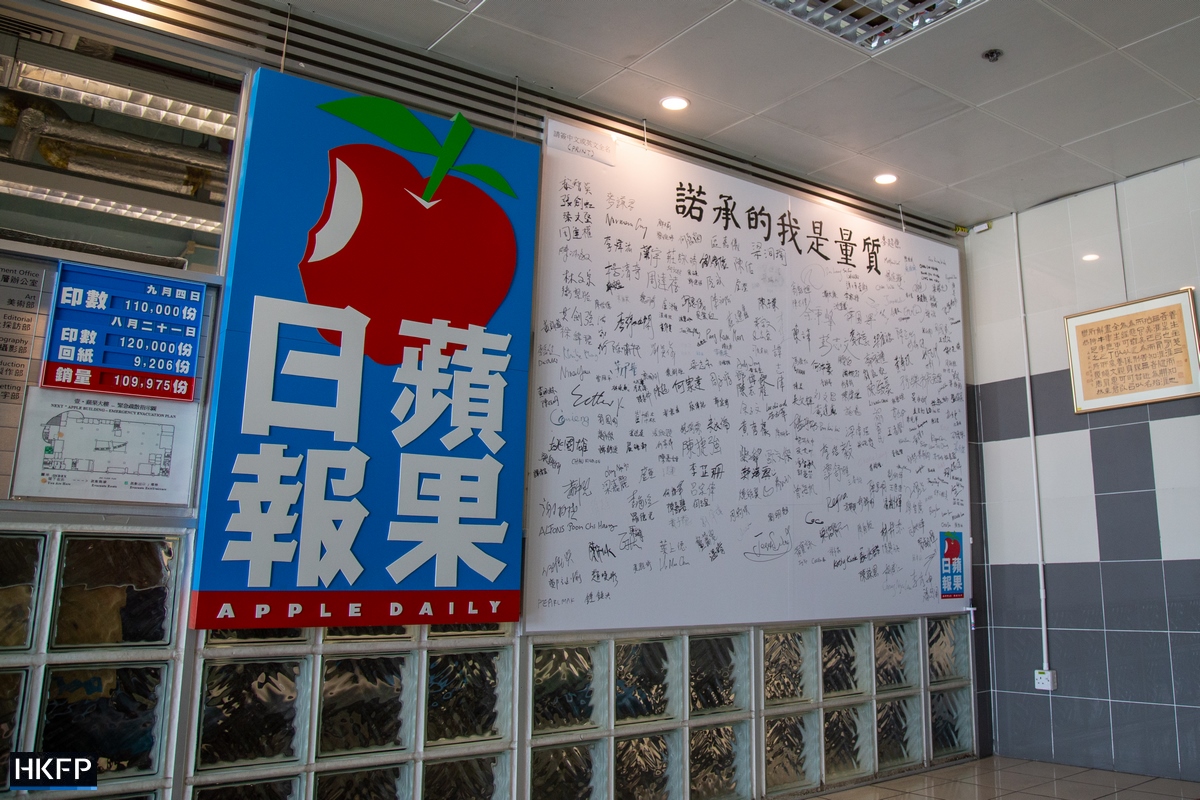
State-owned media, meanwhile, have also taken aim at the city’s largest pro-democracy newspaper Apple Daily, accusing it of publishing “fake news” and calling for disinformation to be regulated.
An opinion poll found public perception of the credibility and independence of the city’s local press are at record lows, with participants sensing a growing reluctance from news outlets to criticise both the local and central governments.
Journalist convicted
Freelance TV producer Bao Choy was convicted and fined HK$6,000 after she accessed public car registration records while investigating police response to the Yuen Long mob attacks against civilians and protesters in July 2019 for an RTHK documentary programme. She had won a human rights press award for her work the day before.
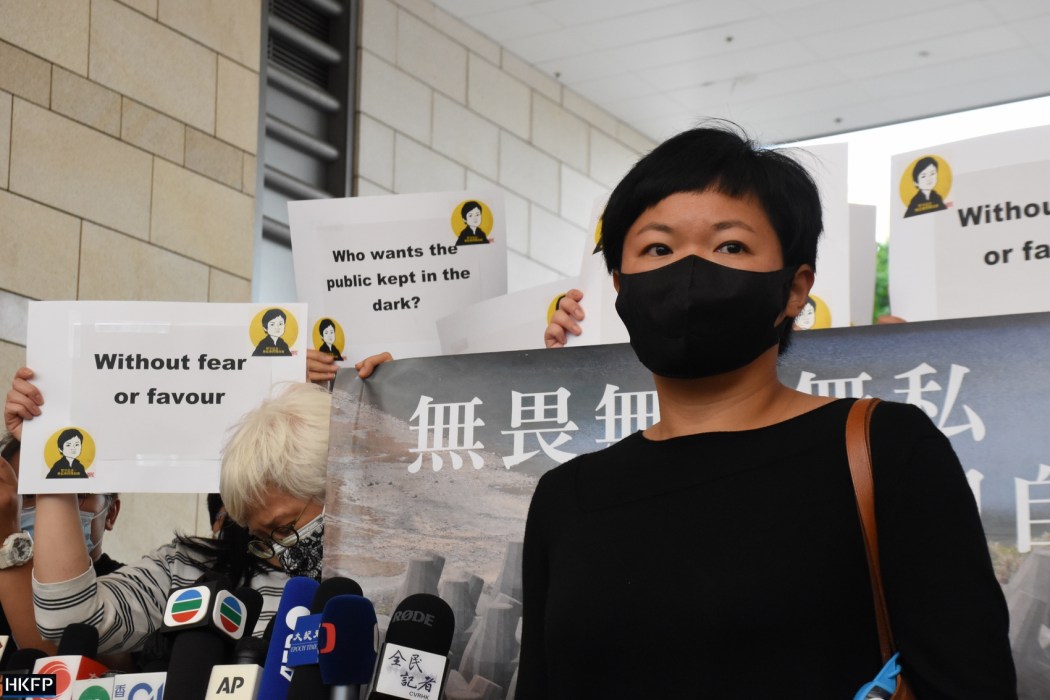
A reporter for a state-owned paper was arrested on the same charge the day following Choy’s verdict.
The FCC criticised the ruling as a “dangerous precedent” that will deter journalists from conducting similar searches in the course of reporting. Its statements drew the ire of China, with Beijing lambasting the press club and accusing it of being an “external force” interfering in the country’s “internal affairs”.
Activists sentenced over banned protest
Seven veteran pro-democracy activists were found guilty of organising and participating in an unauthorised assembly that saw hundreds of thousands demonstrate peacefully on August 18, 2019.
Concurrently, three pro-democracy figures – including Apple Daily founder Jimmy Lai and veteran activist Lee Cheuk-yan – were sentenced over a separate assembly later the same month.
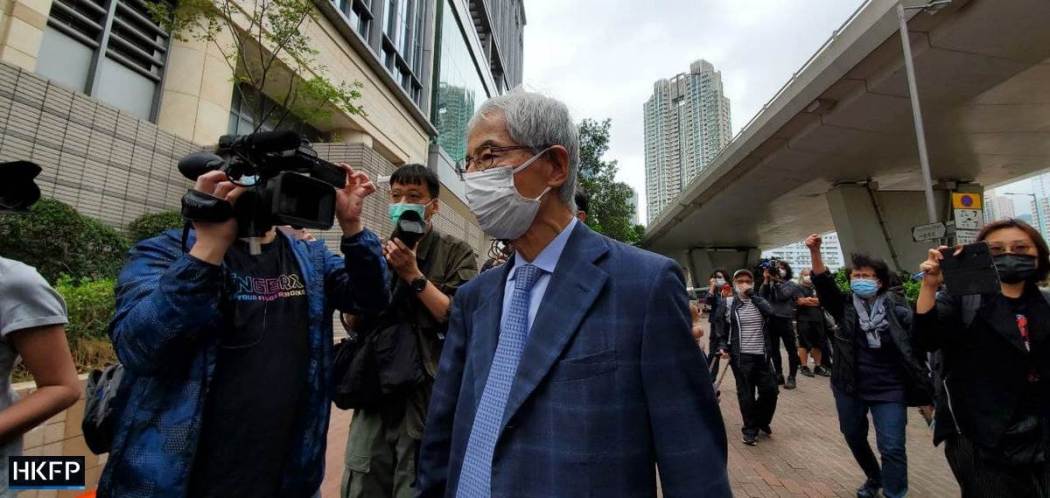
Icons of the Hong Kong legal system “Father of Democracy” Martin Lee and Margaret Ng now face a probe by the Bar Association after complaints lodged by pro-Beijing groups calling for them to be disbarred.
Inciting blank votes to be criminalised
Hong Kong’s legislature, emptied of any meaningful opposition, is moving quickly to implement Beijing’s electoral overhaul for the city. Details of the new national security screening and vetting committee mean people who want to run will open themselves up to an investigation by the national security police on their entire past to ensure loyalty to China.
The bill also criminalises the incitement of others to cast blank votes without the need to show an intent to undermine an election.
Peaceful protest organisers probed
The Civil Human Rights Front (CHRF) is facing a police probe into whether it has violated the Societies Ordinance. The rights alliance, which organised mass peaceful demonstrations which drew millions onto the streets during the 2019 pro-democracy protests, has been asked to hand over its financial records and bank details.

Separately, the city’s annual Tiananmen Massacre vigil at Victoria Park has effectively been banned by authorities for a second year over pandemic concerns.
Pro-democracy chain raided
Over 100 customs officers raided the warehouse and stores of a pro-democracy retail chain over allegations of missing safety labels, seizing around HK$400,000 worth of products. Democrats have decried the raid as politically motivated, as the chain’s founder is one of the 47 pro-democracy figures who have been charged with subversion over the unofficial primary elections last July.
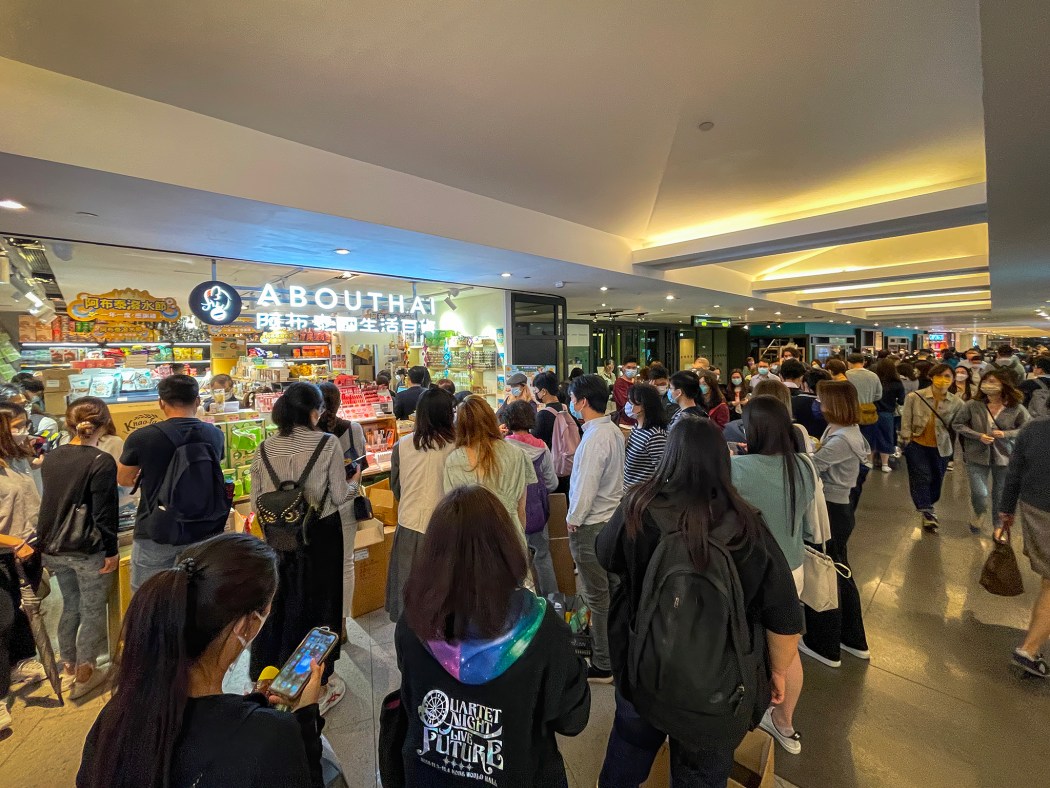
In response, many Hongkongers formed long queues outside AbouThai’s stores to support the business.
Support HKFP | Policies & Ethics | Error/typo? | Contact Us | Newsletter | Transparency & Annual Report | Apps
Help safeguard press freedom & keep HKFP free for all readers by supporting our team
























